Our Broken World: The Toxic Nexus of Power and Money

NEWS JUNKIE POST
Jan 19, 2012 at 8:41 pmA Crisis of Ontology
The deadly disease of our global capitalist system is rather easy to understand from a philosophical standpoint. The crisis is ontological, a profound existential turmoil. Human beings are currently defined and valued by what they have, not by what they are. The quantitative aspect of our lives is in the forefront of all human interactions — either between groups or individuals within a group — while the qualitative aspect has been pushed aside, not even on the back burner of our collective consciousness, but literally into the trash of our social interactions. Usually, people are gauged by their assets, incomes, and cars they drive not by an evaluation of the contributions they make to the common good. We live in a world where a person is defined by quantity not quality, and this is probably our biggest systemic problem.
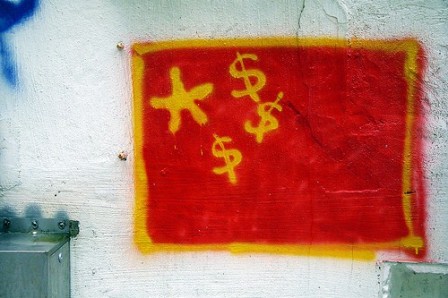 This is reflected by countless examples in the popular culture of expressions like “show me the money”, “money talks” or the famous line in Brian De Palma’s Scarface: “First you get the money, then you get the power.” Poor kids, dreaming of a better future, are constantly bombarded by the spectacle of the “bling, the cool cribs, the fancy rides and the sexy babes” which are the trademarks of most Hip Hop music videos. Money is always center stage in this out-of-reach universe of players who, regardless of any tangible cultural significance, serve as heroes and role models for the disenfranchised. It is the deadly equation of money= success + happiness + self respect = power. The same toxic component motivates some of the brightest and best educated young people in the United States to opt for a career on Wall Street instead of becoming doctors, engineers or scientists.
This is reflected by countless examples in the popular culture of expressions like “show me the money”, “money talks” or the famous line in Brian De Palma’s Scarface: “First you get the money, then you get the power.” Poor kids, dreaming of a better future, are constantly bombarded by the spectacle of the “bling, the cool cribs, the fancy rides and the sexy babes” which are the trademarks of most Hip Hop music videos. Money is always center stage in this out-of-reach universe of players who, regardless of any tangible cultural significance, serve as heroes and role models for the disenfranchised. It is the deadly equation of money= success + happiness + self respect = power. The same toxic component motivates some of the brightest and best educated young people in the United States to opt for a career on Wall Street instead of becoming doctors, engineers or scientists.
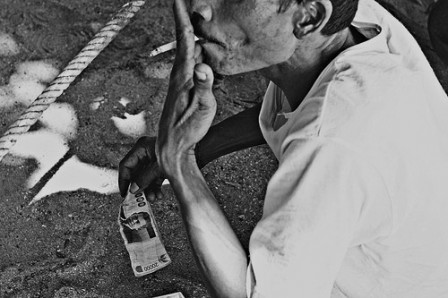 In our global society, only money gives a few people access to power, which in turn allows the very same people the possibility to accumulate yet more wealth. A typical example of this vicious cycle is the constantly revolving door between investment banks, such as Goldman Sachs, and the highest jobs at the US Treasury Department. Top finance executives with a taste for power, such as Hank Paulson or Larry Summers, under the premise of an interest in public service, work for governmental branches for a few years, then go back to their extremely lucrative jobs in finance, and so on.
In our global society, only money gives a few people access to power, which in turn allows the very same people the possibility to accumulate yet more wealth. A typical example of this vicious cycle is the constantly revolving door between investment banks, such as Goldman Sachs, and the highest jobs at the US Treasury Department. Top finance executives with a taste for power, such as Hank Paulson or Larry Summers, under the premise of an interest in public service, work for governmental branches for a few years, then go back to their extremely lucrative jobs in finance, and so on.
Anxiety Rising: Occupy Versus Fear and Paradigm Paralysis
Some people still live under the pretense that things in our broken global system will eventually fix themselves up spontaneously by some kind of miracle. Of course it will not happen, and this model is, by essence, the definition of magical thinking. Recently, a Haitian woman, interviewed for the occasion of the second anniversary of the earthquake, said that she was “putting her trust in god, not in people” to rebuild Haiti from the horrific disaster. With a rising uncertainty and global anxiety building up like a pressure cooker, most people are scared and either try to escape reality by putting their heads in the sand or are convinced that the global system can be salvaged by making changes from within.
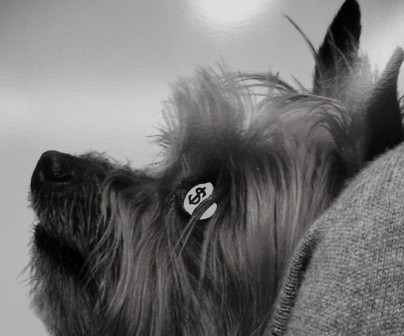 But, what they refuse to see is that this model of a business-as-usual mentality impairs their judgments and locks them into the box of paradigm paralysis. Even though most people feel that we have already entered an extraordinary period of global paradigm shift, the fear of the unknown makes them want to hang on to a system in an advanced state of decay. More people worldwide are becoming aware of the fact that it is not a question of if the system will collapse but, rather, when.
But, what they refuse to see is that this model of a business-as-usual mentality impairs their judgments and locks them into the box of paradigm paralysis. Even though most people feel that we have already entered an extraordinary period of global paradigm shift, the fear of the unknown makes them want to hang on to a system in an advanced state of decay. More people worldwide are becoming aware of the fact that it is not a question of if the system will collapse but, rather, when.
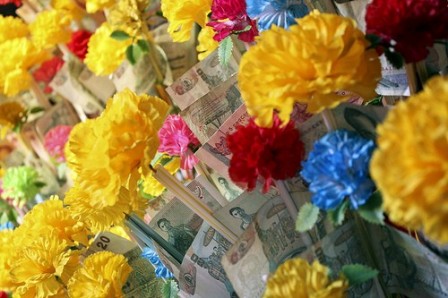 The global Occupy movement has two functions in this process: firstly, to be the main catalyst for systemic change, secondly, to be one of the architects to set up the foundations for a new global system where quality, not quantity, shall finally prevail in human relationships. Turning what seems to be a Utopian idea into a reality is the challenge, and it is what this brave new world is all about. It is only a question of reaching a certain critical mass and developing the psychological ability to welcome the unknown, without fear, and enter uncharted territories.
The global Occupy movement has two functions in this process: firstly, to be the main catalyst for systemic change, secondly, to be one of the architects to set up the foundations for a new global system where quality, not quantity, shall finally prevail in human relationships. Turning what seems to be a Utopian idea into a reality is the challenge, and it is what this brave new world is all about. It is only a question of reaching a certain critical mass and developing the psychological ability to welcome the unknown, without fear, and enter uncharted territories.
Editor’s Note: All photographs by Magalie L’Abbe.
Related Articles
- March 29, 2012 Our Broken World: The Toxic Nexus of Power and Money
- November 23, 2012 Occupy Strategy: Global Strike and Consumer Boycott Should Be on the Agenda
- December 15, 2011 Occupy and The Mayan Calendar: Will 2012 Be the Year of a Global Revolution?
- February 8, 2012 Will Occupy Choose Super-PAC Funding Over Radical Action?
- October 1, 2012 Global Revolution: Can We Take Money Out of the Social Equation?
- January 13, 2012 A Message To Occupy: It’s Time To Move Forward

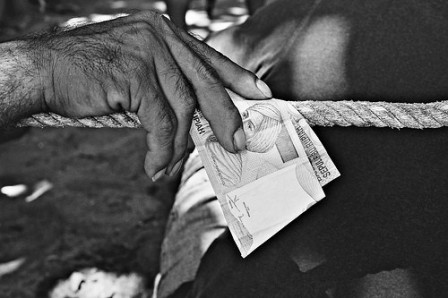
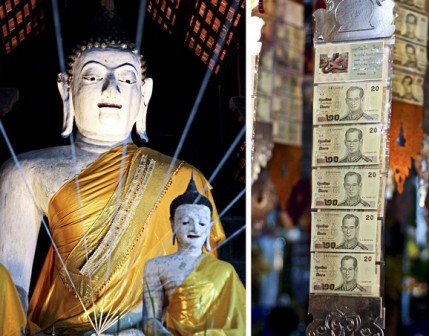











You must be logged in to post a comment Login